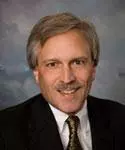As you pursue money, power, or status, are you doing so to help others or control others?

In reviewing my newsletter from last December, I noted it opened with a litany of items I viewed as tearing apart society all at once. Since last year, some of these have improved, others have stayed about the same, and a few have gotten worse.
But one thing that has gotten exponentially worse? The mean-spiritedness of elected leaders seems to have spread throughout society and metastasized, hardening the hearts and minds of millions.
Over-Politicized and Under-Moralized
A friend shared an article she’d seen in the November 2023 AARP Bulletin titled “Q&A David Brooks.” David Brooks is a thoughtful columnist for The New York Times whose columns frequently deal with society, morality, and a quest for deeper meaning. In the Q&A was his incredible answer to the first question:
I think as a society we are over-politicized and under-moralized. We spend too much time thinking about politics and not enough time on the things that really matter, which are having courage and honesty, being honorable, and being capable of great love.
He calls our current situation a “societal breakdown” that makes people believe they are “invisible and unseen,” causing them to “get angry and lash out and become mean.”
While he recommends various institutional reforms, he chooses to “focus on the bottom” – getting to know the angry, mean people by having conversations and learning what’s causing their anger and meanness. I agree that having individual conversations will help, yet I’m concerned these one-on-one talks cannot keep pace with the reach and leverage of the lies and hatred spewed from the top to thousands or even millions.
When I started my career, I’d learned about the power of leverage – the various ratios of partners, managers, senior associates, and associates – in a professional services firm. The larger the ratio, the more leverage is achieved and the greater the profit. Over my career, I have had both service industry and manufacturing clients, and observed that the manufacturing clients were always more profitable because the work done by people was multiplied several times over by the machines they used.
To have a chance of solving society-sized problems, any solution must achieve manufacturing-like scale from the bottom up, or must focus on changing the behaviors of people at the top to reduce their reach and leverage.
Insecurity and Life Goals
As I thought further about leverage and society, I was reminded of a key section in a book I read many years ago titled The Power of Self-Coaching: The Five Essential Steps to Creating the Life You Want, by Joseph J. Luciani, PhD, a clinical psychologist who is also a lecturer and speaker. In an outstanding section titled “Misguided Life Goals,” the author shared these thoughts:
Simply put, any goal that is driven by insecurity is all about control – not fulfillment. Although there can be an extensive array of misguided goals, I've come to recognize three major culprits:
- Money – the accumulation of money, which is equated with security and happiness
- Power – the quest for power and potency, which is equated with invulnerability
- Status – the compulsion for status, which is equated with intimacy, being loved and respected
Having a hard time distinguishing Power and Status, I eventually settled on this distinction:
- Someone with Power can set or enforce rules affecting your life, liberty, and money. Your boss or an elected official has Power – through their enforcement of company rules, or their creation and enforcement of laws, they compel you to do what the company or government requires.
- Someone with Status can set an example for others to follow. Your pastor or a civil rights leader are persons with Status – through their leadership and character, they help you be the best version of yourself.
People with a healthy sense of self-worth will find fulfillment using their money, power, or status to help others, while highly insecure people will use what they have to control others in a vain attempt to secure happiness, safety, or love.
As I wrestled with understanding the implications of these three goals and the difference between fulfillment and control, I found it helpful to picture a real-life person demonstrating a healthy pursuit of each goal. Here are the persons I chose:
- Money – An article from August 2023 in Fortune on MacKenzie Scott, one of the richest women in the world, opens this way –“MacKenzie Scott's quest to give the bulk of her wealth to charity continues.” To give away $14 billion – nearly half her wealth – in just 3 years shows me she views money in a healthy manner.
- Power – The US President is frequently called the most powerful person in the world – and rightly so, given the military and armaments, administrative agencies, and executive powers entrusted to this person. Fortunately, President Biden, while not flawless, is a devoted career civil servant possessing strong moral character, a wealth of experience, good judgement, and solid personnel throughout his administration – he is certainly worthy of the trust “We The People” have given him to use the power of the presidency for our common good.
- Status – To me, the epitome of status through character and leadership is Mother Teresa. This small woman of Albanian descent began her calling as a teacher in Calcutta, India and eventually became disturbed about the poverty all around her. In 1946, she felt called to live among and serve the poor in Calcutta, founding the Missionaries of Charity, which eventually grew to over 4,500 nuns in over 130 countries. Through her simple life and exemplary servant leadership, she achieved a status she did not actively seek.
This is how I see these three people finding fulfillment in using their money, power, or status to help others.
Of course, you could easily choose different persons having a healthy relationship with money, power, or status – and we can all readily name persons having an unhealthy relationship with these.
Lessons Learned in Kindergarten
I've never met any of the three people I just described, yet if I could and was able to ask them about the rules they try to live by, I imagine they would list most or all of the following from the classic All I Really Need to Know I Learned in Kindergarten, by Robert Fulghum:
- Share everything.
- Play fair.
- Don’t hit people.
- Put things back where you found them.
- Clean up your own mess.
- Don’t take things that aren’t yours.
- Say you're sorry when you hurt somebody.
These few rules address all the three life goals listed by Dr. Luciani:
- Sharing your Money and not taking this from others.
- Tempering your Power – whether physical strength or position in government or a business – so as to play fair and not hit or hurt others.
- Realizing the rules apply to everyone, regardless of Status, so that you put things back, clean up the mess you made, and apologize when you hurt someone.
If you do your best to consistently live by these rules, people will rightly view you as a “good person." If not, people will rightly call you greedy, a cheater, a bully, stuck-up, a brat, a thief, or a jerk.
Just imagine how much better society would be if more people having wealth, power, or status began living out the lessons we learned at five years of age.
“Am I My Brother's Keeper?”
The phrase “Am I My Brother's Keeper?” – uttered by Cain shortly after murdering his younger brother, Abel – is commonly used to mean looking out for the interests of others. To me, this is a rhetorical question, as I believe everyone's answer to this question should be “Yes.”
Unfortunately, persons who have acquired great wealth, power, or status are frequently corrupted by these – and, by definition, such persons have the ability to buy or bully politicians to represent their interests and enact legislation that favors the few and not the many, or persuade their followers to engage in mean-spirited or even illegal actions. These relatively few people at the top of the heap of money, power, or status are, as David Brooks described, “Over-Politicized and Under-Moralized,” and through their leverage pass along and amplify their insecurities about money, power, or status to thousands or even millions.
Such persons at the top make it necessary to have places like Greensboro Urban Ministry (GUM) to help clean up their messes, many resulting from employers failing to pay a living wage. For nearly 18 years, my friends from First Lutheran Church and other congregations have gathered early every Friday morning to prepare and serve a simple hot breakfast to good persons who have had some bad luck and – having little or no savings – lost their housing.
I'm always amazed at just how much our guests have weathered, yet how polite and appreciative they are – they obviously remember the lessons they learned in kindergarten. My friends and I never fail to hear several “thank you's” from our guests, not only because of the food but also because we treat them with the respect and dignity they deserve. We all have listened to our guests share their stories with us. We do all this because we our “brother's keeper” to them.
My holiday wish is that the few people causing most of society's problems could meet our guests some Friday morning and see what my friends and I see – people not controlled by what they have, yet fulfilled despite what they lack.
Peace, Shalom, Salaam, Namaste,

Todd L. Herman






